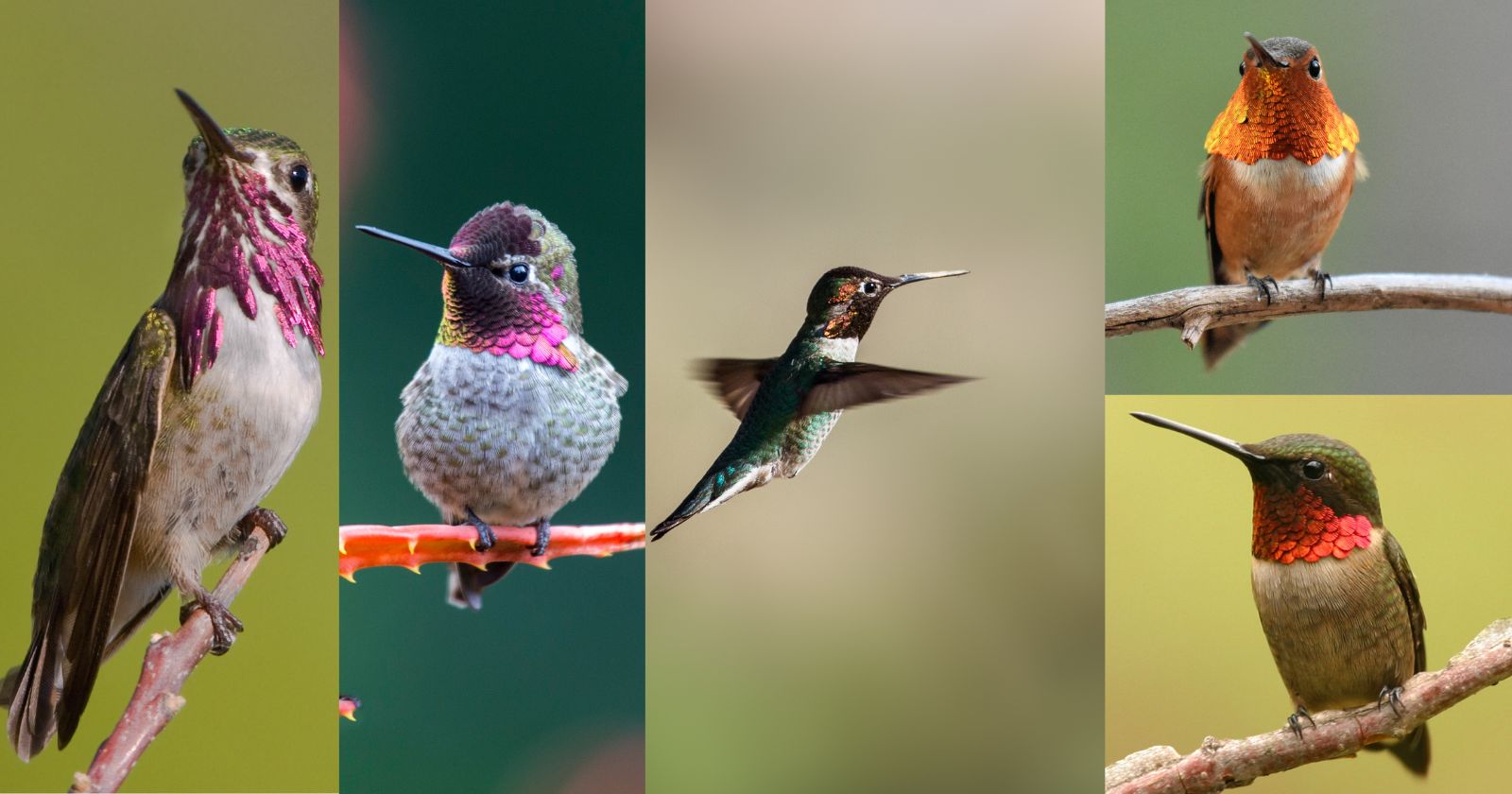Hummingbirds do indeed live in Canada, primarily during the summer months. Five species of hummingbirds can be found in various parts of the country, with the Ruby-throated Hummingbird being the most common and widespread. These tiny birds typically arrive in Canada in spring to breed and feed, then migrate south for the winter.
In this blog post, we will look into the world of Canadian hummingbirds, focusing on their habitats, behaviors, and migration patterns. Additionally, we’ll discuss ways to attract these remarkable birds to your garden and how to support their conservation.
Related Post: 5 Most Common Hummingbird Species Found in Canada.
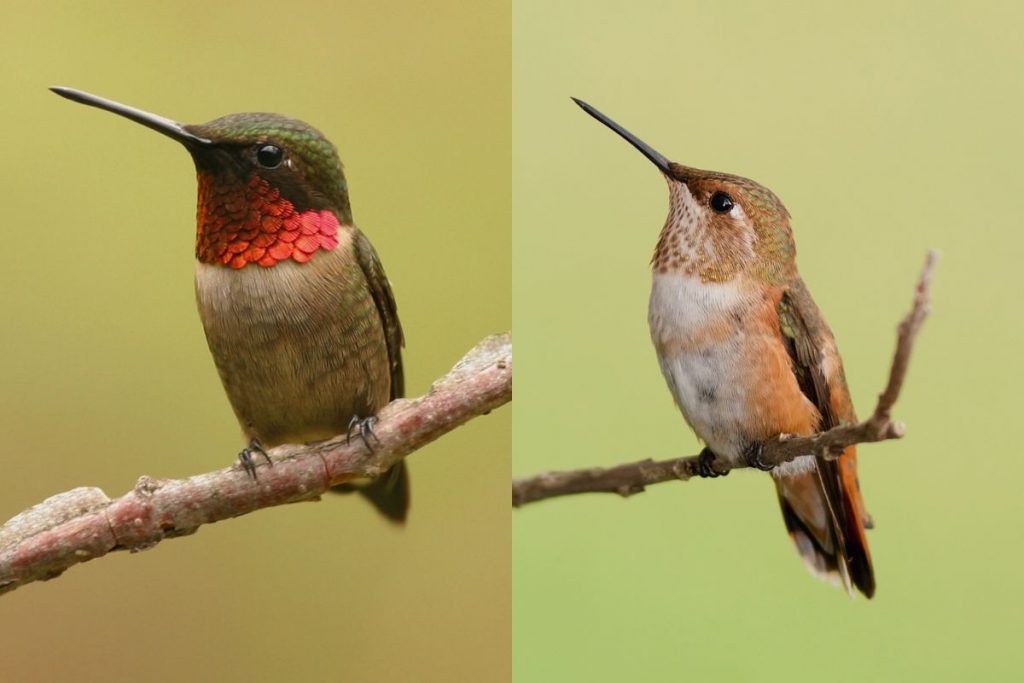
Which Hummingbird Species Can Be Found in Canada?
Canada is home to several hummingbird species, each with its unique characteristics and preferred habitats. Let’s take a closer look at the most common hummingbirds you might encounter in different parts of the country:
Please note that their appearance and timing may change from year to year due to environmental factors.
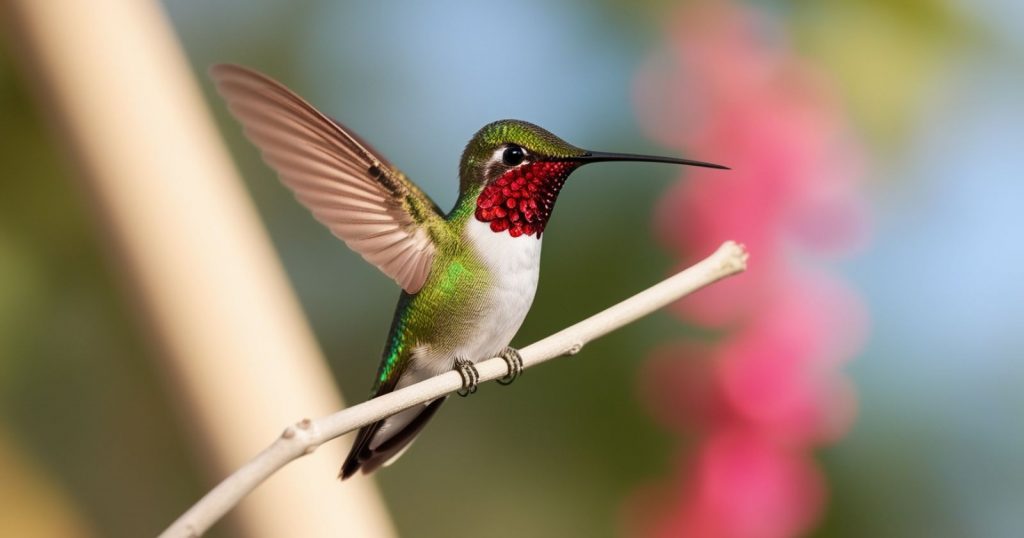
1. Ruby-throated Hummingbird (May to September)
The Ruby-throated Hummingbird is the most widespread species in Canada and the only one regularly found in the eastern part of the country. Here are some key facts about this tiny marvel:
- Range: From Alberta to Nova Scotia and as far north as southern Ontario and Quebec
- Appearance: Males have a distinctive ruby-red throat, while females have a white throat
- Migration: They typically arrive in Canada in May and depart by September
- Diet: Nectar from flowers and small insects.
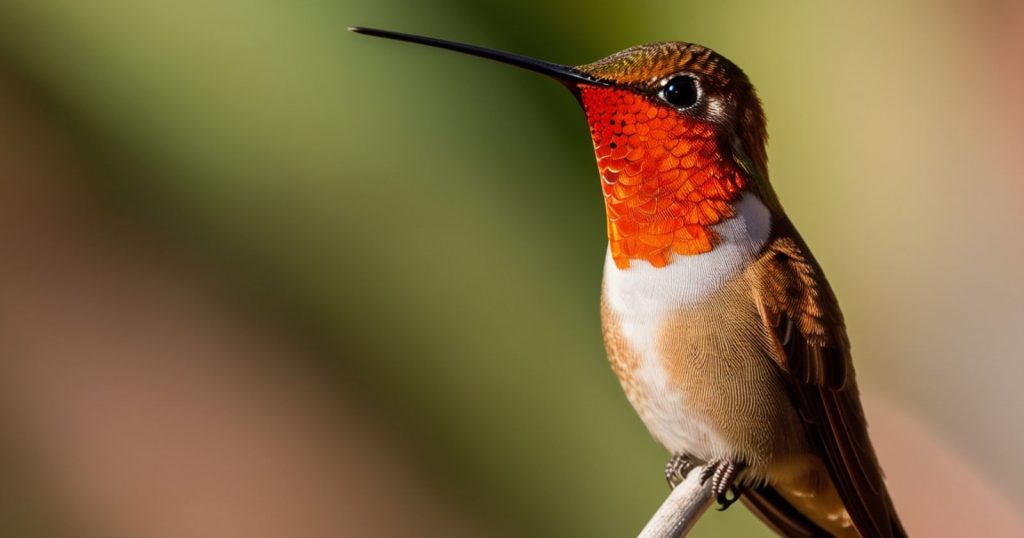
2. Rufous Hummingbird (April to August/September)
The Rufous Hummingbird is the most common species in western Canada. These feisty little birds are known for their impressive migration journeys. Here’s what you need to know:
- Range: Primarily found in British Columbia and parts of Alberta
- Appearance: Males have a bright orange-red throat and reddish-brown plumage
- Migration: They arrive in Canada in April and leave by August or September
- Behaviour: Known for their aggressive territorial behaviour.
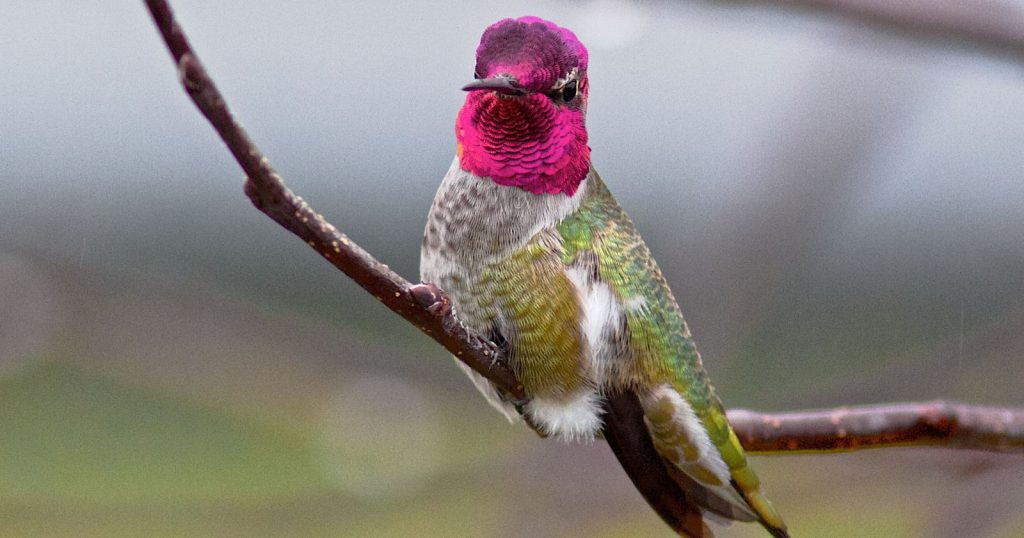
3. Anna’s Hummingbird (Year-round in some parts of BC)
Anna’s Hummingbird is a relatively recent addition to Canada’s bird population, with its range expanding northward in recent years. Here are some interesting facts:
- Range: Mainly found in coastal areas of British Columbia
- Appearance: Males have a distinctive iridescent pink throat and crown
- Unique Trait: Some populations are now year-round residents in parts of BC
- Adaptability: Known for their ability to survive colder temperatures compared to other hummingbird species.
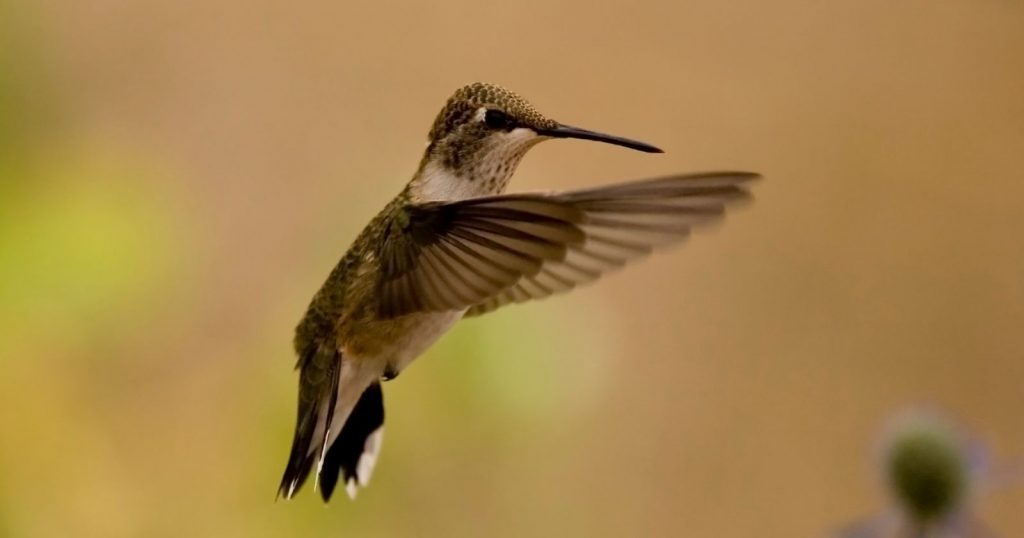
4. Black-chinned Hummingbird (Spring to late summer)
The Black-chinned Hummingbird is less common in Canada but can be found in certain regions:
- Range: Primarily in southern British Columbia and parts of Alberta
- Appearance: Males have a black chin with a thin strip of iridescent purple at the base
- Habitat: Often found in dry areas near water sources
- Behavior: Known for their acrobatic flying skills and ability to hover in place.
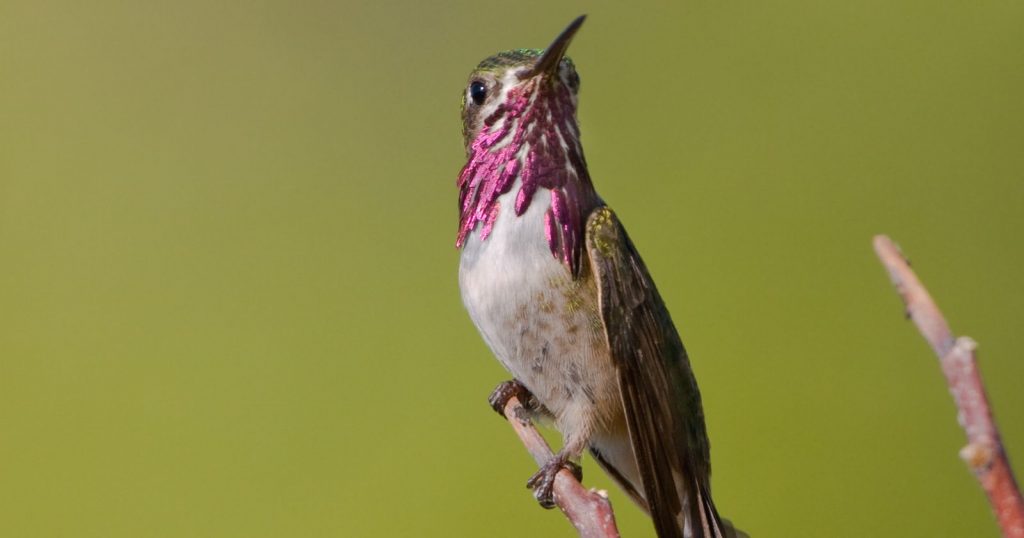
5. Calliope Hummingbird (Spring to late summer)
The Calliope Hummingbird holds the distinction of being the smallest breeding bird in Canada and North America. Here’s what makes them special:
- Range: Found in mountainous areas of British Columbia and western Alberta
- Appearance: Males have a distinctive magenta-striped gorget (throat patch)
- Size: Weighing only about 2.5 grams, they’re truly tiny!
- Migration: They have one of the longest migratory journeys relative to their body size
Where to Spot Hummingbirds in Canada
If you’re keen on observing these fascinating birds, here are some tips on where to find them:
- Gardens and Parks: Look for areas with plenty of flowering plants, especially those with tubular flowers.
- Forested Areas: Many hummingbird species prefer woodland edges and clearings.
- Mountain Meadows: In western Canada, hummingbirds can often be found in high-altitude meadows.
- Feeders: Many Canadians attract hummingbirds to their gardens using specially designed nectar feeders.
How to Attract Hummingbirds to Your Canadian Garden
Want to bring these delightful creatures closer to home? Here are some tips:
- Plant Native Flowers: Choose plants that bloom throughout the season, such as bee balm, cardinal flower, and columbine.
- Provide Nectar Feeders: Use a mixture of four parts water to one part white sugar. Avoid using honey or artificial sweeteners.
- Create a Water Source: Hummingbirds love moving water, so consider adding a small fountain or mister to your garden.
- Avoid Pesticides: These can harm hummingbirds and reduce their insect food sources.
- Leave Spider Webs Intact: Hummingbirds use spider silk to build their nests.
Hummingbird Conservation in Canada
While hummingbirds are not currently considered at risk in Canada, they face challenges such as habitat loss and climate change. Here’s how you can help:
- Support conservation organizations focused on bird protection
- Participate in citizen science projects like eBird to help track hummingbird populations
- Create wildlife-friendly spaces in your garden or community
- Advocate for policies that protect natural habitats and address climate change
Final Thoughts
The presence of hummingbirds in Canada is a testament to the country’s diverse ecosystems and the remarkable adaptability of these tiny birds. From the common Ruby-throated Hummingbird in the east to the feisty Rufous Hummingbird in the west, these avian jewels bring joy and wonder to Canadians across the country.
Before we conclude, here’s a question for you: Have you ever spotted a hummingbird in Canada? If so, which species was it, and where did you see it? We’d love to hear about your experiences in the comments section below!
Thank you for reading this blog post about hummingbirds in Canada. If you found it helpful, please consider sharing it with fellow bird enthusiasts or anyone curious about Canada’s wildlife. Happy hummingbird watching!
Related Posts to Read:
- Best Hummingbird Feeders.
- Are There Hummingbirds In Africa?
- Are There Hummingbirds in Europe?
- Are There Hummingbirds in Australia?
- Are There Hummingbirds In China?
- Are There Hummingbirds In Thailand?
- Are There Hummingbirds In The UK?
- Are There Hummingbirds In South Africa?
- Are There Hummingbirds In Greece?
- Are There Hummingbirds In France?
- Are There Hummingbirds In Germany?
- Are There Hummingbirds In The Caribbean?
References:
- About Hummingbird (Wikipedia).
- About Canada (Wikipedia)
- Greenewalt, C. H. (1960). Hummingbirds. New York: Doubleday. Google Scholar.
